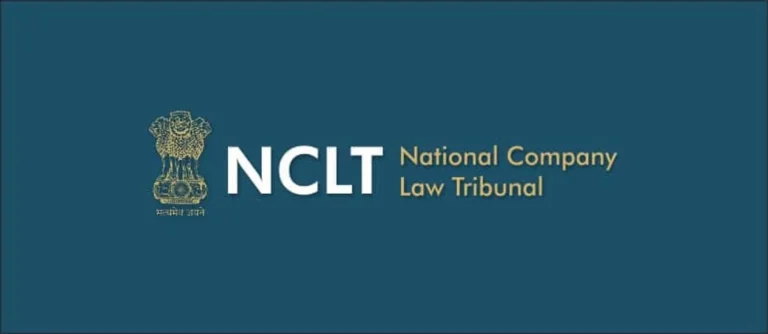
Supreme Court Backs 25% Domicile Reservation at NLU Jodhpur
A Landmark Ruling: The Supreme Court’s Endorsement of Domicile Reservation
The Supreme Court of India has voted in favor of the 25 percent domicile reservation in the National Law University (NLU), Jodhpur in a very crucial legal case that is likely to transform the admission policies in other national law schools. With this decision, a long-standing controversy on the appropriateness of such reservations comes to an end, especially in establishments of national significance. The verdict of the court points out that not only are these reservations constitutional, but they also have the benefit of letting the local talent have the chance to study in the prestigious institutions that are in their state. The decision is an important measure to strike a balance between the nationalizing and localized aims.
The Genesis of the Case and the Arguments Presented
The legal tussle started with the NLU Jodhpur introducing the 25 percent reservation of students who are nationals of Rajasthan. A group of students resisted this move on the basis that this type of policy will contravene the principle of equality and fairness as it will give a biased field to candidates who are not in the state. They argued that the national law universities must be all-Indian in nature and domicile reservations subvert this basic spirit. The central point that the petitioners put forward was that these institutions are state-funded and that they should be merit-oriented and students should not be given any preference considering their state-of-origin.
The Supreme Court’s Rationale and Constitutional Principles
In its elaborate ruling, the Supreme Court ruled out the case of the petitioners and gave a solid legal rationale to its ruling. The court used the logic of the constitutional provisions which permit positive discrimination in order to provide social and educational boost. The judges indicated that the state government is entitled to have special provisions about residents especially in institutions that are well-funded by the state. According to the court, such reservations are useful in correcting the educational gaps that may be present in various parts of the country. The ruling will contribute to the establishment of precedence to other states and institutions planning to have a similar policy of domicile reservation.
For any queries or to publish an article or post or advertisement on our platform, do call at +91 6377460764 or email us at contact@legalmaestros.com.
Implications for the Future of Legal Education in India
The decision made by the Supreme Court has some far-reaching consequences on the future of legal education in India. It will probably lead to similar domicile reservation policies being implemented or continued at other state-funded national law universities. This would result in a huge rise in the students of a specific state being admitted to their local NLU and this would consequently culminate into the creation of a strong local legal community. Nevertheless, the case also casts the existence of what is meant by national institutions into question and the effect it might have on diversity of students. Although the ruling is meant to provide a balance between the interests of the locals and the aspirations of the nation, its in the long run impacts will be keenly monitored by students, teachers, and policymakers in the country.
A Step Towards Inclusivity and Social Justice
The ruling of the Supreme Court can be regarded as a move toward the increased inclusiveness and social justice. Through the permittance of domicile reservation, the court has realized the special issues that students in some areas might have because they might not be afforded the same resources as their colleagues in other states. The decision means that institutions of excellence are not beyond reach of students desiring to attend them based on their geographical location. It is a strong words on the role of the judiciary to interpret the Constitution in line with the creation of equity and access to education by everyone. The decision reinstates the assumption that merit is not the only factor since it is important and social context and local needs must be considered.
For any queries or to publish an article or post or advertisement on our platform, do call at +91 6377460764 or email us at contact@legalmaestros.com.




![Research Assistantship @ Sahibnoor Singh Sindhu, [Remote; Stipend of Rs. 7.5k; Dec 2025 & Jan 2026]: Apply by Nov 14, 2025!](https://legalmaestros.com/wp-content/uploads/2025/11/Gemini_Generated_Image_s0k4u6s0k4u6s0k4-768x707.png)
![Karanjawala & Co Hiring Freshers for Legal Counsel [Immediate Joining; Full Time Position in Delhi]: Apply Now!](https://legalmaestros.com/wp-content/uploads/2025/11/Gemini_Generated_Image_52f8mg52f8mg52f8-768x711.png)
![Part-Time Legal Associate / Legal Intern @ Juris at Work [Remote]: Apply Now!](https://legalmaestros.com/wp-content/uploads/2025/11/ChatGPT-Image-Nov-12-2025-08_08_41-PM-768x768.png)
![JOB POST: Legal Content Manager at Lawctopus [3-7 Years PQE; Salary Upto Rs. 70k; Remote]: Rolling Applications!](https://legalmaestros.com/wp-content/uploads/2025/11/ChatGPT-Image-Nov-12-2025-08_01_56-PM-768x768.png)